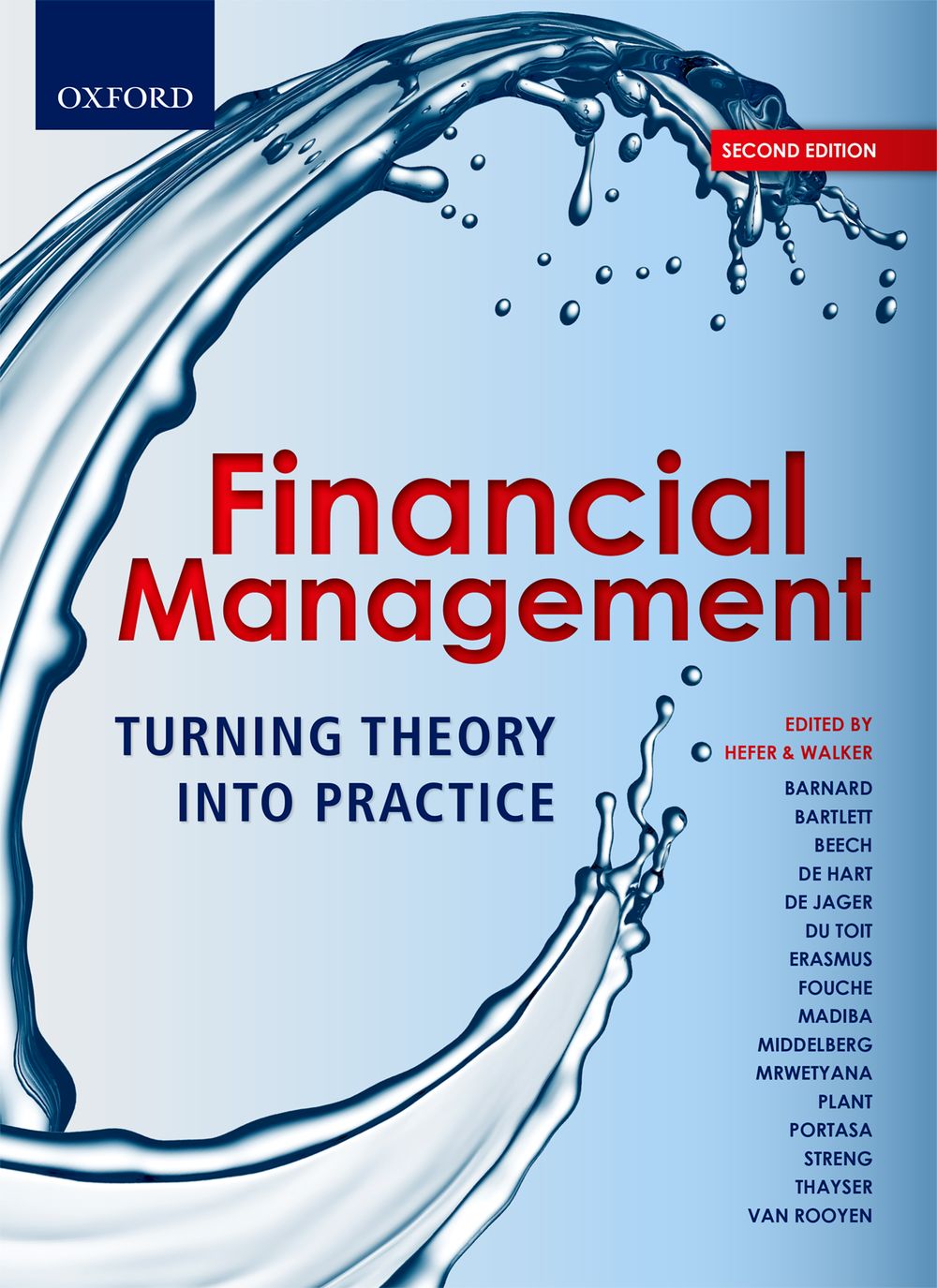Financial Management: Turning Theory into Practice 2e
R799.00 (incl. VAT)
Opening case studies engage Financial Management: Turning Theory into Practice is an accessible and principles-based financial management textbook for second- and third-year students, as well as students enrolled in Honours courses.
The book shows that the financial decisions made by financial managers do not rely solely on economic models, but also on stakeholder behaviour and management practices. These aspects are highlighted in both the theoretical and practical aspects of the book in an understandable format. By referring to a financial management cycle focused on creating value, the authors illuminate the connections between the activities undertaken by these managers – and emphasise the impact of their decisions on the business.
Financial Management illustrates how the discipline and practice has changed in response to the fallout from the 2008 financial crisis, ongoing debates about corporate governance, research on behavioural finance, and the unfolding consequences of t he coronavirus pandemic.
The book follows the SAICA syllabus for financial management, but also takes the skills required by the CIMA syllabus into account. Its guided approach aims to produce graduates who possess technical competence, practical insight, and both managerial and leadership qualities.
The book shows that the financial decisions made by financial managers do not rely solely on economic models, but also on stakeholder behaviour and management practices. These aspects are highlighted in both the theoretical and practical aspects of the book in an understandable format. By referring to a financial management cycle focused on creating value, the authors illuminate the connections between the activities undertaken by these managers – and emphasise the impact of their decisions on the business.
Financial Management illustrates how the discipline and practice has changed in response to the fallout from the 2008 financial crisis, ongoing debates about corporate governance, research on behavioural finance, and the unfolding consequences of t he coronavirus pandemic.
The book follows the SAICA syllabus for financial management, but also takes the skills required by the CIMA syllabus into account. Its guided approach aims to produce graduates who possess technical competence, practical insight, and both managerial and leadership qualities.
Features
- Opening case studies engage students' interest and illustrate why the principles that will be dealt with in the chapter are important for the successful financial management of South African companies.
- Finance-in-action boxes provide real-life examples of the theory covered in the chapter, or critical thoughts or further discussion.
- Worked examples guide students through problems in a step-by-step manner and give them confidence to tackle questions on their own.
- The tutorial at the end of each chapter consolidates the key principles covered in the chapter and prepares the student for the type of thinking they are expected to master as future CAs.
- The use of a financial management cycle to give a more meaningful structure to the book
- Re-arrangement of content ton fit into the new structure in a logical way
- Increased focus on undergraduate content
- A double-chapter introduction, where Chapter 1 serves as an introduction for a second-year course and Chapter 2 serves as an introducti on fo r a third-year c
Additional information
| Author/s | |
|---|---|
| ISBN | 9780190722869 |
| Edition | 000002 |
| Publication Date | 20 Jan 2021 |
| Format | |
| Pages | 0 |
| Language |

